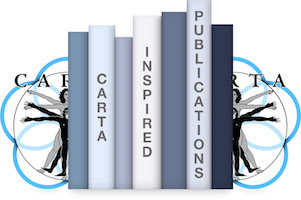CARTA-inspired Publications

CARTA encourages transdisciplinary research to advance our understanding of human origins through its symposium series. CARTA symposia provide a forum for researchers in varied fields to come together "to explore and explain the human phenomenon.” Member interactions continue after symposia and via the web site. This page lists examples of publications inspired by interactions amongst CARTA members. The list will be updated periodically.
Displaying 426 - 441 of 441 publications
No publications found

